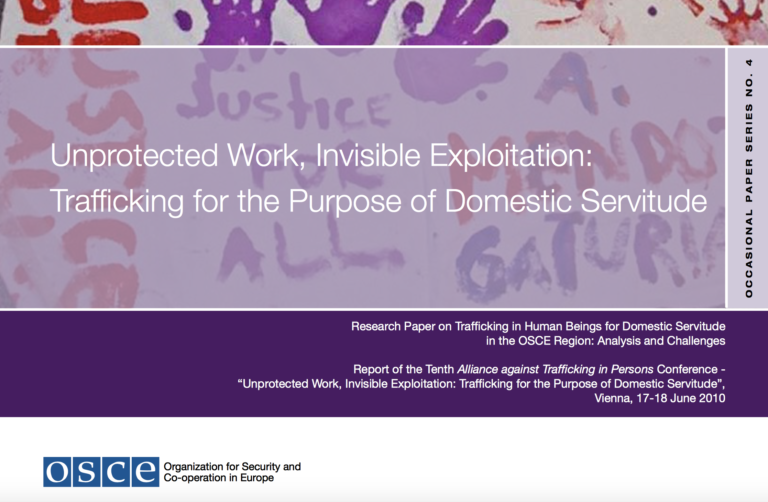This Occasional Paper, focusing on labour trafficking in domestic work, is meant to provide a policy tool for decision makers and practitioners dealing with trafficking in human beings on the ground and is based on desk research, fieldwork and case study analyses in order to shed light on one of the most invisible forms of modern-day slavery. The Paper also benefits from the comments, inputs and expertise of specialized NGOs. Furthermore, it is enriched by the valuable contributions and direct experience of policy makers and public officials (including law enforcement, prosecutors, judges, diplomats), as well as trade unions, international organizations and academics who participated in the Alliance Conference.

